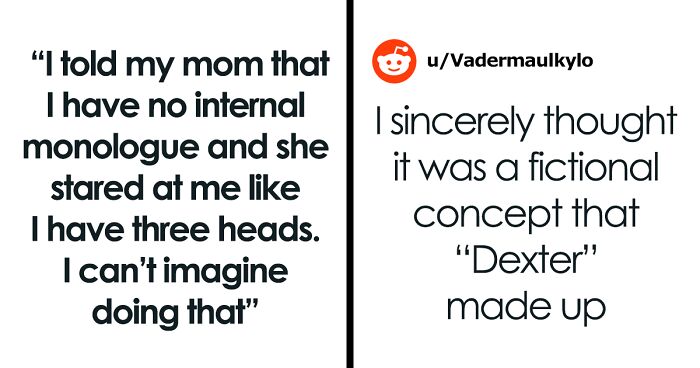
Person Thinks Internal Monologue Is A Made-Up Concept, Is In “Shock” After Learning Most People Have It
If you’ve ever had an internal monologue, you know how bizarrely normal and even comforting it feels to talk to yourself. Whether you play out a conversation or prepare for tomorrow’s speech, or even make an internal to-do list, it’s something that’s become deeply embedded in our inner world since we were children.
But it turns out, the same rules don’t apply to everyone. Imagine the utter shock when the Reddit user u/Vadermaulkylo realized inner monologues are real and not “a fictional concept that ‘Dexter’ made up,” as he sincerely thought. The reality hit when u/Vadermaulkylo told his mom about not having one, and she stared at him like there was something wrong with her kid. So let’s see u/Vadermalkylo’s post on the subreddit r/NoStupidQuestions, which caused quite a stir in the community.
It turns out, people are torn between camps where on one side, you have devoted inner talkers who think it’s a given, and those who seriously think it’s some kind of bogus charlatan nonsense.
A similar case happened to Ryan Langdon, who was convinced everyone had an in-born ability to talk to themselves. Ryan set out on an investigation of how come some people don’t have inner monologues that you can read more about in our previous article.
This Reddit user shared an incident about how he told his mom that he had no internal monologue
Image credits: Vadermaulkylo
And it left people scratching their heads
It turns out, most adults who share the ability to run an internal monologue in their mind with themselves develop it during childhood.
According to Kristeen Cherney, a mental disabilities scholar, “As children acquire language skills, they also concurrently learn how to engage in internal commentary as they’re working independently or taking turns during an activity.” Childhood inner voices can come in many forms, and the most common is having an imaginary friend.
After we grow up, our ability to engage in inner speech supports our working memory and other cognitive processes. “It’s thought that internal monologue helps you complete everyday tasks, such as your job,” Kristeen explains.
However, that doesn’t mean that everyone has an inner voice. Or, in particular, not everyone is able to hear their own voice expressing their thoughts, no matter what their thoughts may be.
The inner thoughts that are common in most people are not exactly the same as the inner voice, or monologue. “It’s also possible to have both an inner voice and inner thoughts, where you experience them at intervals,” Kristeen adds.
It turned out, he was not the only one without an inner voice
So if I'm understanding this correct there are people (happy people!) which never had the problem of having stuck at "baby shark doo doo doo doo doo doo..." song in their head for days and days and days for all eternity?!
I think you can still get earworms without having a proper internal monologue.
Load More Replies...My problem is that my inner monologue won't shut up. I'm also an introvert. However, my extrovert mom also has it, and my friend who thinks in words, not in pictures (I don't know the word for that) also has this damn monologue. I've never met anyone who claimed to not have it! What a lucky person 🤔
A lot of times, I have to apologize to people for coming out with some weird remark about the topic we're discussing. Since I've already been through the why's and wherefores of the conversation, my talking part of it usually starts in the middle, not the beginning.
Load More Replies...I'm not talkactive person so....I could'nt live without my Internal Monologue.
I'm sitting here trying to imagine life without it while my internal monologue goes on and on about how that's impossible...
Load More Replies...So if I'm understanding this correct there are people (happy people!) which never had the problem of having stuck at "baby shark doo doo doo doo doo doo..." song in their head for days and days and days for all eternity?!
I think you can still get earworms without having a proper internal monologue.
Load More Replies...My problem is that my inner monologue won't shut up. I'm also an introvert. However, my extrovert mom also has it, and my friend who thinks in words, not in pictures (I don't know the word for that) also has this damn monologue. I've never met anyone who claimed to not have it! What a lucky person 🤔
A lot of times, I have to apologize to people for coming out with some weird remark about the topic we're discussing. Since I've already been through the why's and wherefores of the conversation, my talking part of it usually starts in the middle, not the beginning.
Load More Replies...I'm not talkactive person so....I could'nt live without my Internal Monologue.
I'm sitting here trying to imagine life without it while my internal monologue goes on and on about how that's impossible...
Load More Replies...
 Dark Mode
Dark Mode 

 No fees, cancel anytime
No fees, cancel anytime 








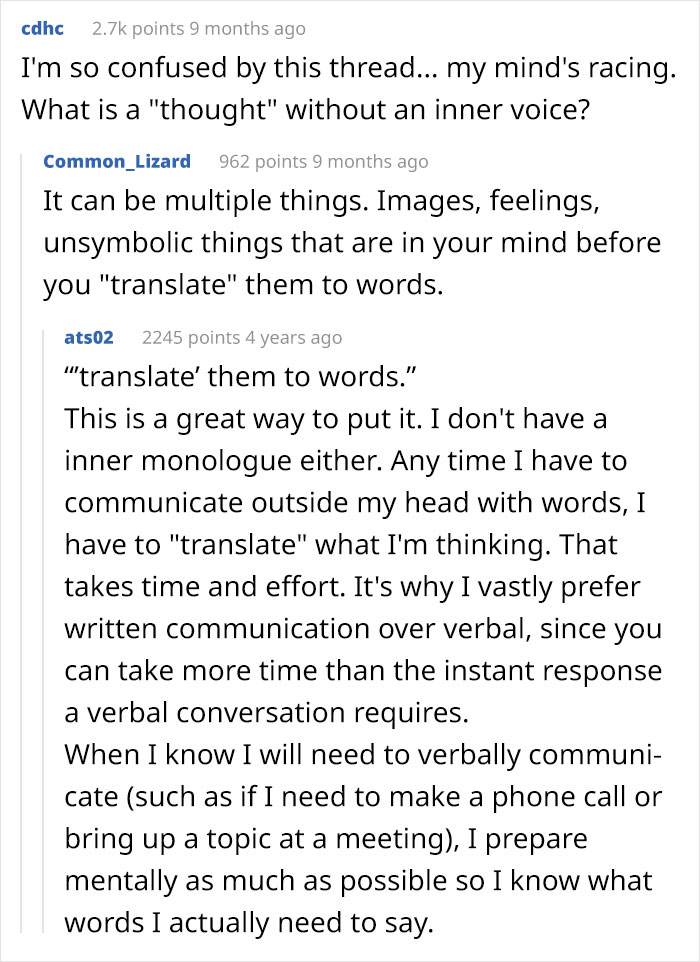
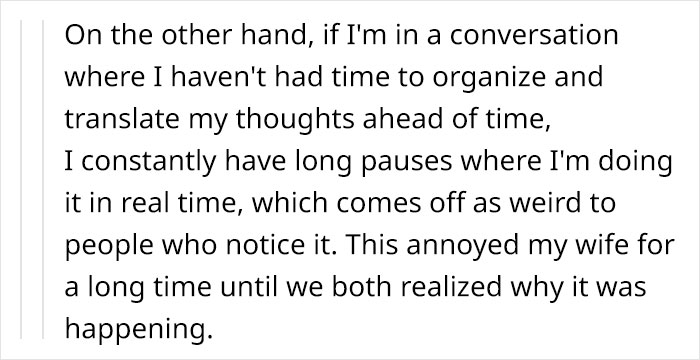




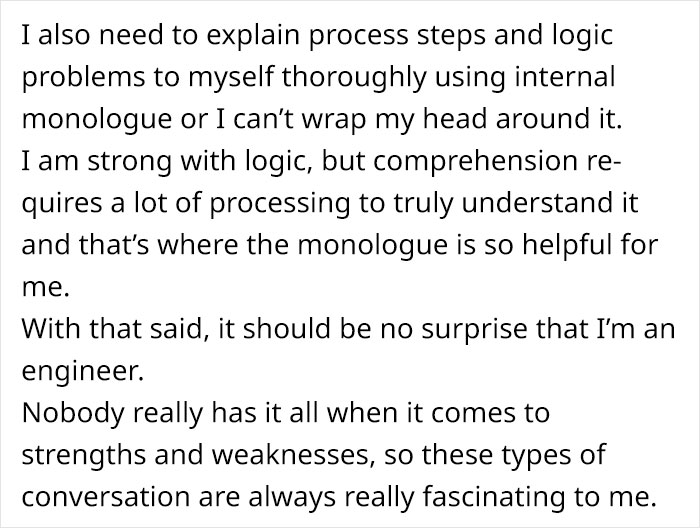

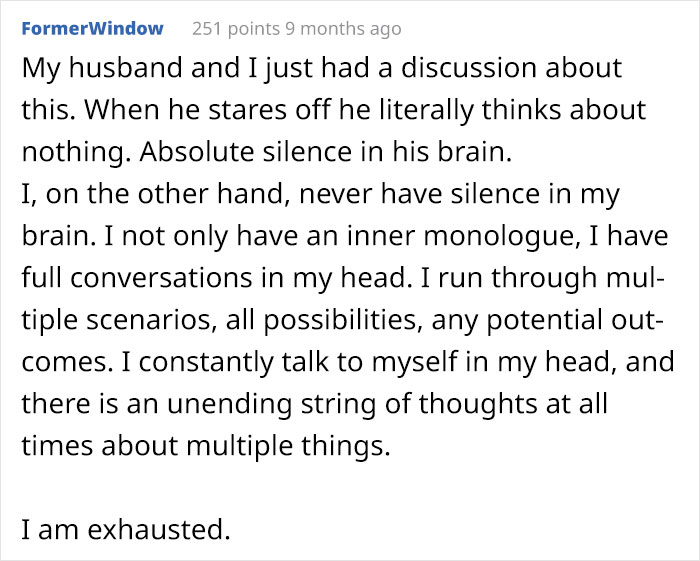


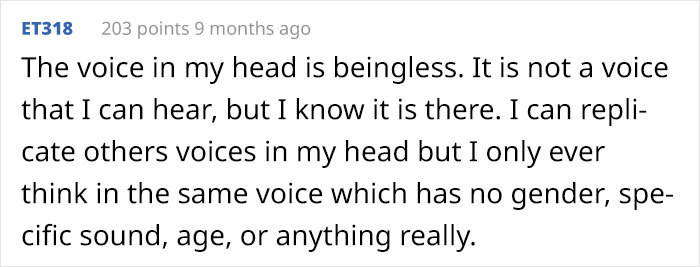


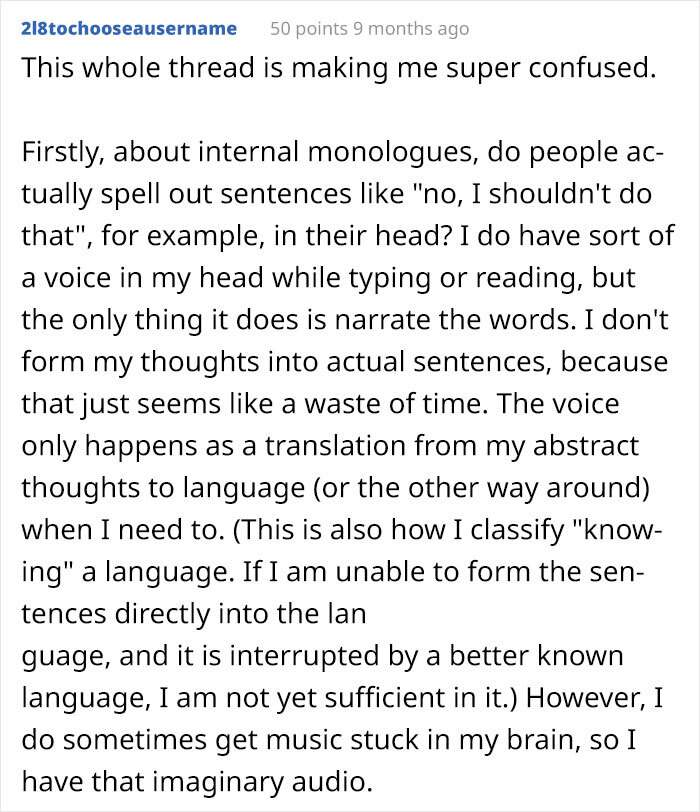
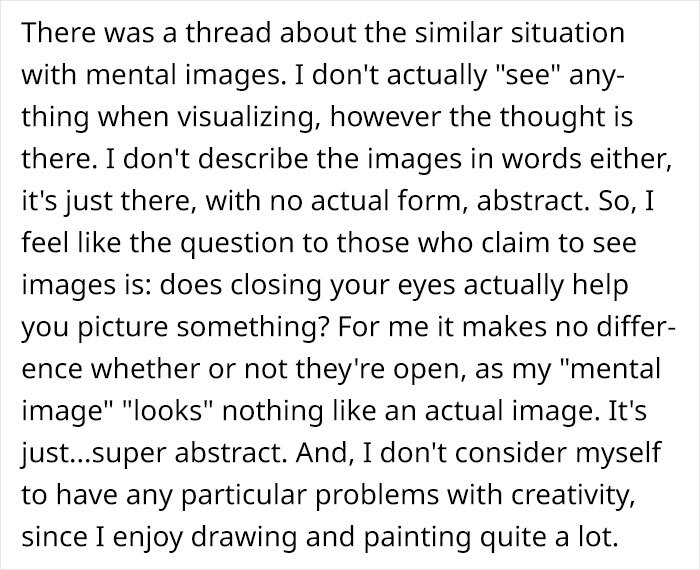












































140
73